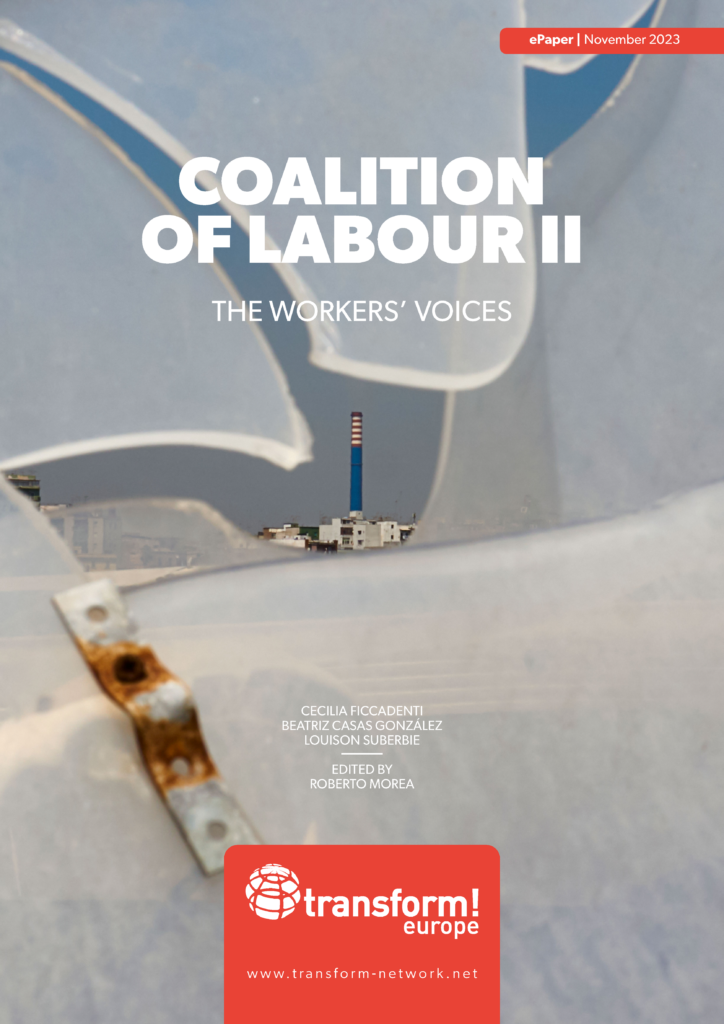This publication continues last year’s project to shed light on living and working conditions in Europe. We did this by collecting the experiences and direct testimonies of those concerned, with the intention of giving a platform to those most affected by the issues highlighted in this publication. To this end, we set up “focus groups”, i.e. collective or individual interviews of homogeneous groups, in order to examine in more detail different areas of work and their specific realities.
The impact of the pandemic and the crisis resulting from the war in Ukraine have had a significant impact on recent years. The digital transition is also accompanied by the climate crisis in the world of work and has influenced working life particularly in recent decades. As we have seen recently and will continue to see, these conditions are a common trend in all European countries.
The realities we have considered in this research project differ according to the type of work and the geographical location.
In Italy, we have focused on an industrial reality of great importance such as the Terni steelworks, a symbol of the heavy industry that accompanied post-war reconstruction and state industrial planning. Although this industry was important in the past, it has since been privatised and relocated.
In Spain, we have focused on the medical system, which today is experiencing a great mobilisation in defence of public health against privatisation and the reduction of services and treatments, with the relative reluctance of the universalist protection system.
In France, the impact of the mobilisation against the pension reform and the impact of the yellow vest mobilisations of recent years have led us to try to examine the transversal effects of the changes in the so-called world of work that have provoked such demonstrations of revolt.
The approach we have adopted is that of a comparative research study, in which we have posed a number of questions which, even though they have been asked in different contexts, have managed to produce answers that are to some extent comparable.
Above all, we have maintained a willingness to listen to and share the direct voice of workers, a voice that is almost always unheard and unable to express itself when it comes to political, economic and social decisions.
Instead, we believe that those who care about the health of democracy and social justice should listen to these voices and spread their message.
Table of Contents
Preface by Roberto Morea
- THE CASE OF THE ACCIAI SPECIALI TERNI:
The voices of factory workers in Italy
by Cecilia Ficcadenti - THE CASE OF PUBLIC HEALTH CARE IN MADRID:
The ongoing conflict
by Beatriz Casas González - THE CASE OF THE YELLOW VESTS MOVEMENT:
Back to mobilisation, four years after the beginning
by Louison Suberbie
Conclusion by Cecilia Ficcadenti, Beatriz Casas González and Louison Suberbie
